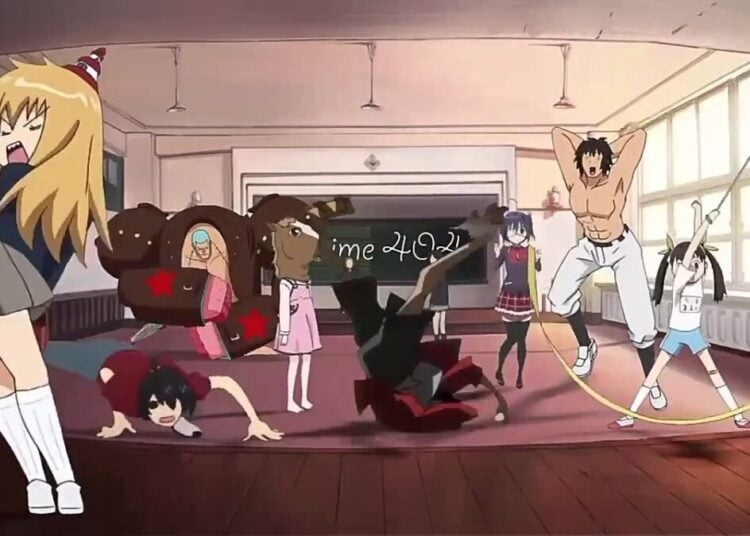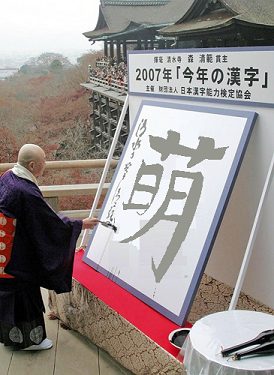The most common word for “foreigner” in Japanese is gaijin, a term that’s used to describe Westerners who are obviously different from the background of nihonjin. (Non-Japanese from nearby Asian countries are generally referred to by their nationality, e.g. chuugoku-jin for Chinese, kankoku-jin for South Koreans, etc.) Japanese assume certain things about gaijin, such as, any given Caucasian you see will be from America, every Western man is tall, and every Western female is busty and “blonde,” even when her hair is jet black. Sunday is anime watching night in our family, and one show I like to watch with my kids is Chibi Maruko, the story of of a lazy-but-cute elementary school student named Maruko set during the 1970s. In one episode, Maruko meets a “blue-eyed person” who was staying at a friend’s house, which turns out to be a girl named Pearle, visiting from overseas. Immediately there was mass chaos as Maruko tried to come up with some English to say to the girl, but she didn’t know any. Maruko went home and asked her family to teach her some English, but all she got was useless phrases like “this is a pen” and “hello! thank you! goodbye!” When Maruko finally was able to figure out how to say “nice to meet you” to the foreign visitor, she was met with puzzlement — it turned out that Pearle was from France and didn’t speak any English. In addition to assuming that every gaijin has English as their native language, it’s assumed that we’re all ridiculously cheerful, outgoing people, and increasingly, that we’re all otaku.
Gaijin are assumed by Japanese to be outgoing otaku.
Introducing Megumi Express, The Proxy Buying Service From J-List!
Last year, J-List began offering a custom order service, giving customers a way to request items from Japan that weren’t...















